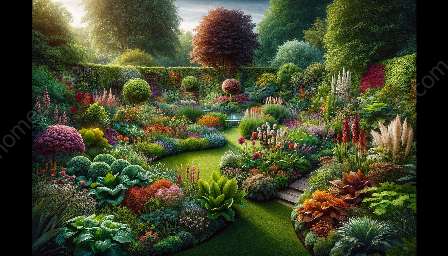Proper plant nutrition is essential for the healthy growth of any garden. This topic cluster explores the role of essential plant nutrients and their relationship with plant nutrition and fertilizers, providing valuable insights for garden enthusiasts.
The Importance of Essential Plant Nutrients
Plants require various elements to thrive, and these essential nutrients are crucial for their growth and development. When present in the right balance, these nutrients contribute to robust plant growth, increased fruit and flower production, and overall plant health.
The Essential Plant Nutrients
There are 16 essential plant nutrients classified into two groups: macronutrients and micronutrients. The macronutrients, including nitrogen (N), phosphorus (P), and potassium (K), are required by plants in larger quantities, while micronutrients such as iron (Fe), manganese (Mn), and zinc (Zn) are needed in smaller amounts.
Macronutrients
Nitrogen (N): Nitrogen is vital for plant growth, as it plays a key role in the production of chlorophyll and amino acids, which are crucial for photosynthesis and protein synthesis.
Phosphorus (P): Phosphorus is essential for energy transfer within the plant and is critical for root development, flowering, and fruiting.
Potassium (K): Potassium helps regulate water movement within the plant, aids in photosynthesis, and enhances disease resistance.
Micronutrients
Iron (Fe): Iron is necessary for chlorophyll production and is involved in several enzyme systems within the plant.
Manganese (Mn): Manganese is a cofactor for many enzymes and is crucial for photosynthesis, respiration, and nitrogen metabolism.
Zinc (Zn): Zinc plays a role in various enzyme systems and is essential for the synthesis of growth regulators within the plant.
Plant Nutrition and Fertilizers
Understanding the essential nutrients required by plants is paramount for formulating effective fertilization strategies. Fertilizers that provide the necessary balance of macronutrients and micronutrients can contribute to optimal plant nutrition and promote healthy garden growth.
Types of Fertilizers
Organic Fertilizers: Derived from natural sources, organic fertilizers provide a slow-release and sustainable nutrient supply for plants, improving soil structure and microbial activity.
Synthetic Fertilizers: Manufactured to deliver specific nutrient concentrations, synthetic fertilizers offer quick and targeted nutrient delivery, making them suitable for addressing specific nutrient deficiencies.
Fertilizer Application Techniques
Top-Dressing: Applying fertilizer to the soil surface around plants, top-dressing is an effective method for providing nutrients to established plants without disturbing their root systems.
Soil Incorporation: Mixing fertilizer into the soil before planting allows for even distribution of nutrients and ensures that young plants have access to essential nutrients from the beginning.
Creating a Well-Balanced Garden
Enhancing plant nutrition through the application of fertilizers and ensuring that essential nutrients are readily available is key to maintaining a thriving garden. By understanding the role of essential plant nutrients and their relationship with plant nutrition and fertilizers, gardeners can make informed decisions to support the health and vitality of their plants.





